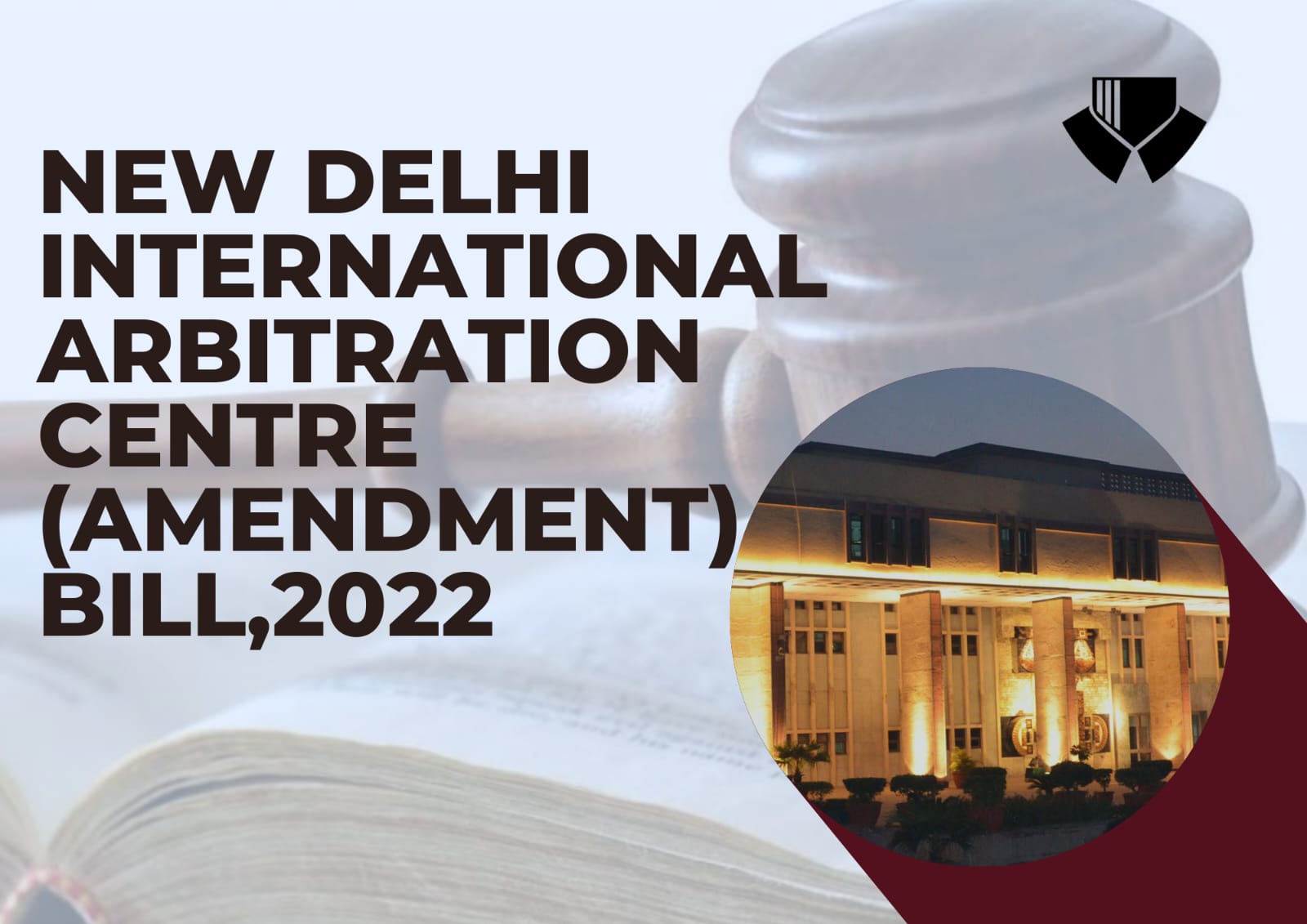This blog is created by Barsha, a 2nd year B.A. L.L.B student from National Law University, Odisha.
INTRODUCTION
The Directive Principles provided by the Constitution mandated the State to actively pursue the well-being of its citizens by establishing a social order where social, economic, and political justice permeates all aspects of life. This provision underscores the commitment to creating institutions that prioritise justice and ensures a fair and equitable society for all.
It is said that “Justice delayed is Justice denied”. The high number of pendency of cases in the Judicial System makes it impossible to dispose of cases within a reasonable time. The less consequential issues have to be resolved by alternative dispute resolution methods such as arbitration, mediation, and conciliation for efficient and speedy disposal of matters.
BACKGROUND
Arbitration is a private and binding dispute resolution process where parties present their case to a neutral third party who delivers a legally enforceable decision outside of court. Arbitration laws before Independence were governed by the Code of Civil Procedure and Arbitration Act, 1940 which was replaced by the Arbitration and Conciliation Act, 1996. Numerous amendments to the same have been introduced over the years covering both domestic and international arbitration with the main objective of providing speedy arbitration and less court intervention.
In India, although 35 domestic and regional institutes have been set up, there is a noticeable absence of a dedicated institution for international arbitration. In an effort to formalise international arbitration, the first step taken was the creation of the International Centre for Alternative Dispute Resolution (ICADR). This autonomous organisation operates under the supervision of the Ministry of Law and Justice, Government of India, with its headquarters situated in New Delhi. Furthermore, ICADR has established regional centres in Hyderabad and Bangalore to expand its reach and impact. While the ICADR did not succeed in achieving its intended objective, the report presented by the High-Level Commission, in 2017, highlighted its potential to become a globally competitive institution after undergoing a revitalization process.
With the aim to place India on the global arbitration landscape, the New Delhi International Arbitration Centre Act, 2019 (referred to as Principal Act hereinafter) was introduced which established the New Delhi International Arbitration Centre (NDIAC). The Principal Act designated NDIAC as a nationally significant institution and included provisions for the acquisition, takeover, and transfer of the operations of ICADR. Although NDIAC had not yet been established, lawmakers introduced amendments to its statute with the New Delhi International Arbitration Centre (Amendment) Bill, 2022. In the following discussion, we will delve into the provisions outlined in the said amendment.
PROVISIONS
Here are the following provisions mentioned :
Renaming the NDIAC
In the introduction of the Bill, the Minister of Law and Justice highlighted that there are currently 35 arbitration centres, all of which are named after cities, including one located in Delhi. However, the name “New Delhi International Arbitration Centre” appears to be overly focused on the city, thereby undermining its role as a nationally significant institution.
The Bill aims to address this issue by renaming the New Delhi International Arbitration Centre as the India International Arbitration Centre in specific sections of the Principal Act. These sections include – the Long Title, Preamble, Section 1 (sub-section 1), Section 2 (sub-section 1, clause (a)), Section 3 (sub-section 1), the Chapter Heading of Chapter II, and Section 4 (marginal heading and sub-section 1), as well as any other occurrences throughout the Act.
Expanding the Scope of Arbitration
The objective of the bill is to enhance India’s appeal as a global arbitration destination, thus broadening the scope of international and domestic arbitration and conciliation to encompass various alternative dispute resolution methods. The specific regulations governing the conduct of arbitration and other alternative dispute resolution processes will be determined by the Central government through resolution.
Removing Drafting Errors
The Bill introduced the following amendments to remove drafting errors from the Principal Act:
- Section 20 (5) – The word “application” was substituted with the word “question” in the context of the Meeting of the Centre stating that in cases where the question before the Centre is not disposed of within 60 days, the reason for the same is required to be recorded in writing.
- Section (23) (1) (a) – The word “Centre” was substituted with the word “Secretariat” empowering the Registrar to supervise the activities of the Secretariat.
- Section 25 (3) – The section, initially, provided for the allowance and salaries of the members of the Centre and the amendment included the allowance and salaries of the Registrar, Counsel and other officers and Employees of the Center even.
- Section 28(1) – The word “which shall” was substituted with the word “to” making the primary goal of the Chamber of Arbitration to select and review arbitrators for panel inclusion, ensuring a consistent and reputable roster of arbitrators.
Extending Time Limitation
The Principal Act vested the Central Government with the power to amend and remove difficulties arising from the Act up to 2 years from the date of the commencement of the Act. The Bills extend the said time period of 2 years to 5 years providing the Central Government with more time span to review and legislate the Act.
CONCLUSION
The resolution of disputes carries substantial implications for India’s economy and the international perception of conducting business in our nation. Building trust and establishing credibility among parties engaged in commercial disputes is of utmost importance. Given the dynamic nature of our economy, swift resolution of disputes and the establishment of institutional arbitration are crucial. The Principal Act was enacted with the purpose of formalising international arbitration in India and positioning our country as a prominent global arbitration hub, ultimately contributing to the growth of the Indian economy. The Bill, introduced subsequently, seeks to consolidate and strengthen these objectives.


